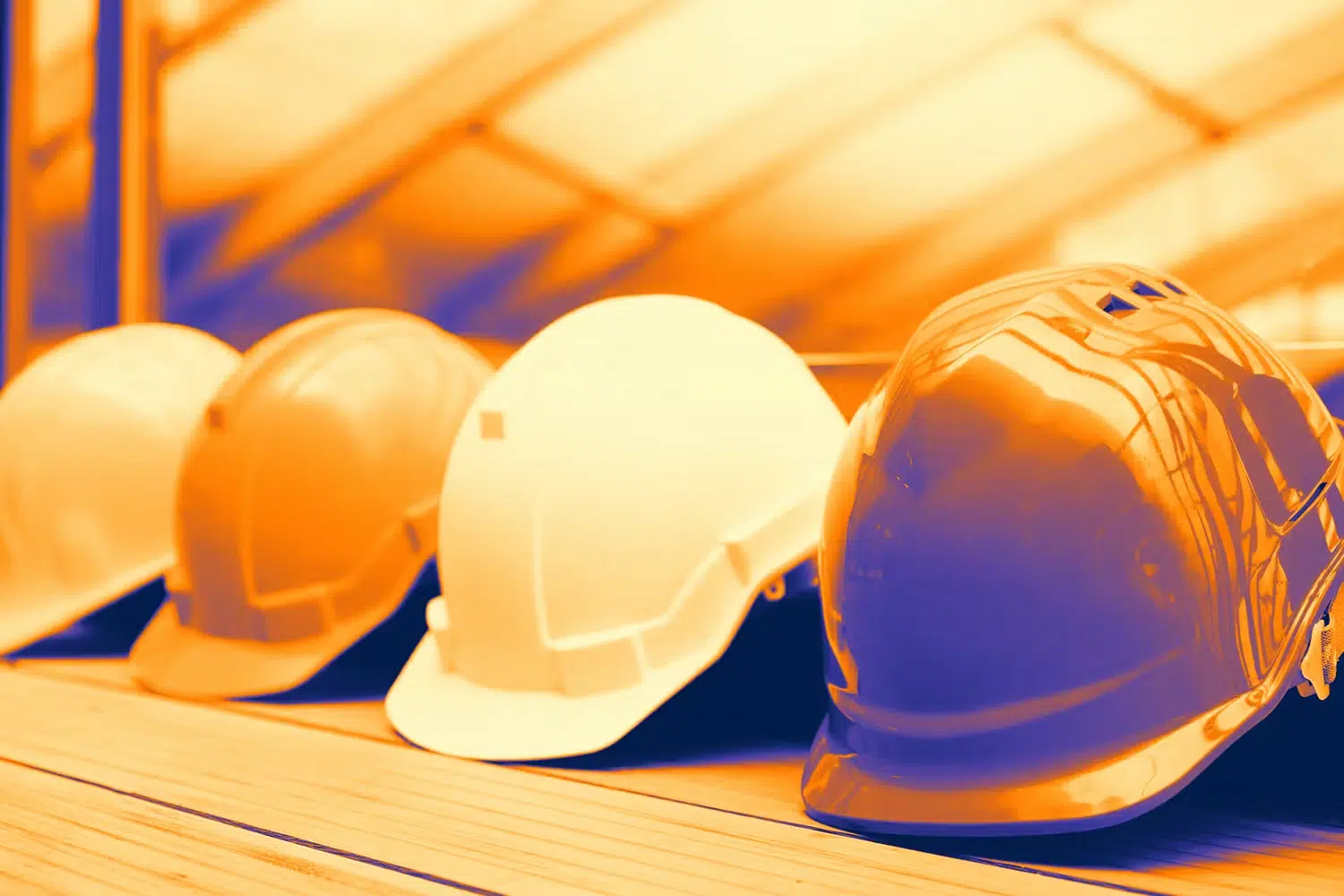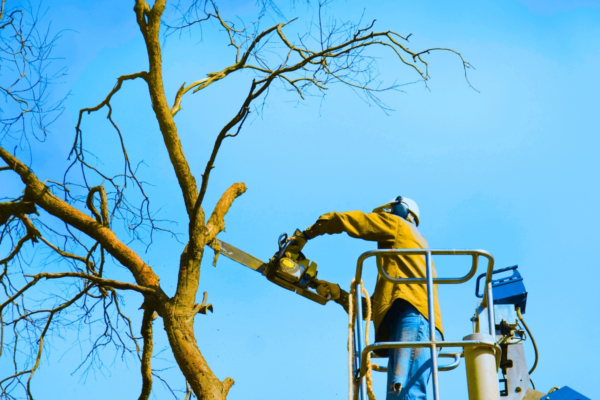
9 Tips for Hiring Contractors

Given all the time we’ve spent in our homes over the last two years or so, there’s a good chance that you have thought of a potential home improvement project that you would like to take on. There are some home projects that you can easily do yourself, but for others, you will need to work with a contractor. A home improvement project can be a big investment; finding a qualified contractor to work with is one of the most crucial steps of any large-scale home improvement project. Here are some things to keep in mind as you search.
Take Action on Your Home’s Equity
Learn more about how you can take advantage of your home’s value for your next home improvement project.
1. Clearly Define the Project
Before you even begin to search for a contractor, it helps to have a clear idea of the remodel you want! Consider the following:
- Can you define the exact scope of your project?
- How big is your project?
- Do you want the highest quality materials, the least expensive, or somewhere in between?
- Will this project affect any other areas of your home, like plumbing or high-traffic areas?
- Do you have a firm deadline for completion?
- Are there any other smaller renovations that could be rolled into this project?
A thorough contractor is going to ask you all of the above anyway, so it can be helpful to have your answers ready. The answers can also help you find the right contractor—especially if the project involves more than one part of your home or if you have specific material requirements. Preparation is the best way to prevent going over the planned budget or missing important deadlines.
2. Ask for Referrals
Word-of-mouth is always the best way to find a reliable contractor, so ask your relatives, neighbors, and friends for referrals. Be sure to ask what made the experience positive, what challenges came up and how the contractor handled them, and whether or not they would work with the contractor again. Back up this research by looking at online reviews.
3. Review the Contractor’s Work History
A contractor’s work history (or lack thereof) will tell you a lot about the quality of work that they do. A professional contractor will have a portfolio where you can view photos of their previous work.
Also, be on the lookout for contractors/companies that have only been around for a few months. If a company has been threatened by a lawsuit, it can easily close down and open up a few months later with a new name, making it possible for them to continue to provide poor service. A solid track record generally means they provide professional services.
4. Check References
Beyond looking at a potential contractor’s portfolio, you can also ask to be put in touch with their former customers. When you reach out to these references, there are some basic questions to ask, including whether the work was done in a timely fashion, whether the budget was accurate, and if they were pleased with the overall outcome.
5. Get Clear on Licensing, Insurance, and Permits
Any contractor that you work with should have the proper licenses needed to work in your specific community. Ask prospective contractors to provide their license number and then verify it with your state’s licensing board.
In addition, contractors should be able to provide proof that they have insurance to cover workers if they’re injured while working on your property, as well as general liability insurance to cover any potential damage that occurs to your home. Don’t hesitate to ask for a copy of their insurance policies to confirm that they are in place and up to date.
And finally, do some research on industry qualifications so you can get an idea of any additional qualifications potential contractors may have. Contractors may belong to organizations that bind them to a strict code of ethics or have certified training in using specific tools or equipment that are relevant to the work that you need to be done.
6. Sign a Contract
No matter what, always get the terms of your project down in writing before any work is done. If there is a conflict and you don’t have a contract, it will be your word against the contractors’ word, which can cause a lot of problems. Experienced contractors will provide a comprehensive contract prepared that lays out all of the terms of the project, including the work schedule, financing, the payment schedule, the proof of insurance mentioned above, and more. Remember: it’s in their best interest to have a contract too! Both parties should be willing to protect their interests with a contract.
7. Clarify Who is Doing the Work
Before any work is started, be sure you know who exactly will be performing the work.
- Is the contractor you are hoping to hire going to be doing all the work, or will they be outsourcing it to a subcontractor?
- Will there be a team of workers, and if so, how many people can you expect to be at your house on any given day?
- Do you know who the primary point of contact will be?
Getting answers to these questions will create peace of mind as you will know exactly who will be entering and working in your home.
8. Determine Payment Details
Be sure to get crystal clear on payment details before any job begins. Pay attention to how the contractor wants you to pay — if a contractor wants you to pay a large portion or the total amount upfront, this is a red flag. This may signal that they have financial problems, or they fear you won’t pay in full after you see the quality of the work. As a good rule of thumb, avoid contractors that ask you to put down more than 10% of the total cost or $1,000 (whichever is less).
The best contractors will draw up a clear and comprehensive payment schedule, and will likely break the project down into phases to maximize clarity and minimize upfront cost.
On your end of things, be sure you have a plan for how you are going to fund the project. Look into home improvement loans, home equity loans, and home equity lines of credit (HELOCs) to determine which method is best for your needs and situation. Get your financials in line before you sign an agreement with your contractor.
9. Plan Ahead for Conflicts
Ideally, your project will go off without a hitch. But there’s always room for conflict, and if it arises, you are better off being prepared. A good contractor will care deeply about your satisfaction and will work to make things right until you are happy with the work. Have an honest conversation with any potential contractors about how they handle conflict. Ask questions like:
- What happens if something costs more than expected?
- What if I am not happy with the end result?
- How do you handle unexpected delays?
- How often will you communicate on the project’s progress?
Above all, hiring a contractor who values communication will prevent a lot of issues. Projects almost never go exactly as planned—but with open and honest communication, it will be easier to overcome obstacles.
Communication goes both ways: if at any point you are uncomfortable with the progress, methods, or results of the project, it’s important to speak up and talk with your contractor. Just like any other service, they can only fix a problem if they know it exists!
Find the Best Contractor for You
When taking on renovation or remodeling projects, everyone’s needs will be different. Finding the right contractor is dependent on many factors, including the scope of the project, your ideal timeline, and your budget. But by taking some extra time now to research and ask the right questions, you can save a lot of future headaches and ensure that your home renovation or remodeling goes as smoothly as possible.
Unsure about the best way to finance your project? Reach out to our Real Estate Team! Amplify has many options and we can help you figure out the best fit for your needs.
Looking for a home equity loan?
Get your project off the ground and apply today.




